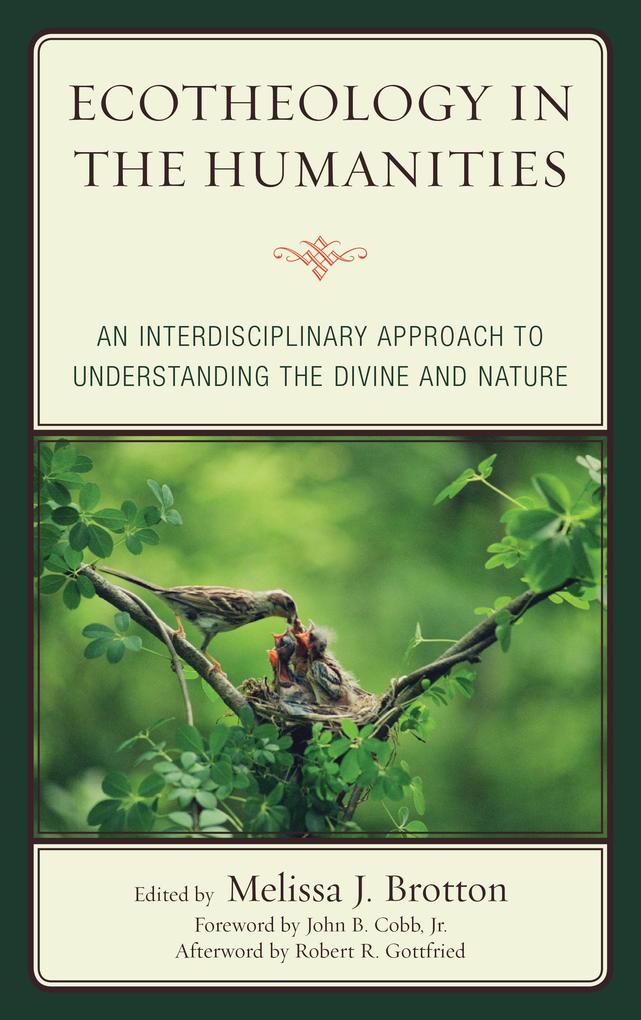Ecotheology in the Humanities explores the connections between biblical, literary, film, and music studies through the poetry of Wendell Berry and Sherman Alexie, the cosmologies of J. R. R. Tolkien and Boethius, and the literary works of C. S. Lewis, Elizabeth Barrett Browning, and Darren Aronofsky's film Noah.
Inhaltsverzeichnis
Foreword - John Cobb Jr.
Introduction - "Heaven and Nature Sing": Introduction - Melissa Brotton
Section I: Creation Care and the Sabbath
Chapter 1 - Friends of the Creator: A Theological Foundation for Earth-keeping Ethics - Ginger Harwood
Chapter 2 - A Biblical Land Ethic? A Response to Aldo Leopold - Ellen Bernstein
Chapter 3 - Sanctification as Impetus for Creation Care in Adventism - Young-Chun Kim
Section II: Sacramental Approaches
Chapter 4 - Ecotheology and Enchantment: How Wendell Berry Helps Re-vision the World - Doug Sikkema
Chapter 5 - Salmon Theology and Spokane Falls: Catholicism and Restorative Justice in Sherman Alexie's Poetry - Chad Wriglesworth
Section III: Classical and Medieval Cosmologies and Music
Chapter 6 - "All Nature Sings and Round Me Rings the Music of the Spheres": Christianity and the Transmission of a Cosmic Ecomusicology - David Kendall
Chapter 7 - Stewards of Arda: Creation and Sustenance in J.R.R. Tolkien's Legendarium - Samuel McBride
Section IV: Ecotheod












